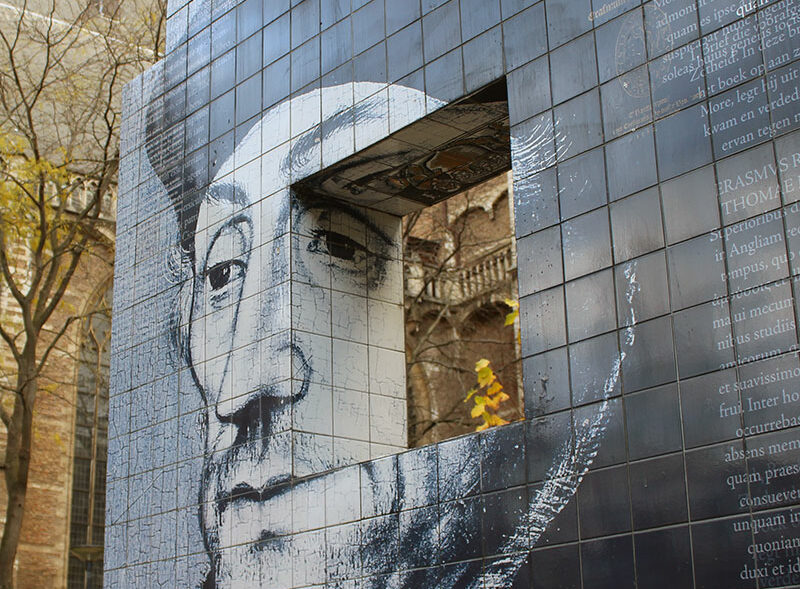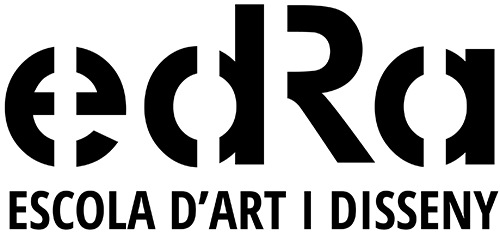Erasmus

ERASMUS edRA
Un dels objectius del nostre Projecte de Centre és promoure la mobilitat dels estudiants. L’escola disposa de la Carta Erasmus que l’acredita dins del programa de mobilitat internacional promogut per la Unió Europea. Alguns dels nostres estudiants han passat el seu període de formació en centres de treball en empreses del Regne Unit i d’Holanda, amb les quals hem establert convenis de col·laboració per fer pràctiques. Els estudiants interessats a acollir-se a aquest programa han de demostrar un bon nivell de coneixement d’una llengua estrangera, preferiblement l’anglès.
Correu de contacte: international@artedra.net
Protocol de selecció d’estudiants per a la formació en centres de treball a l’estranger
Les estades a l’estranger per dur a terme la formació en centres de treball estan promogudes pel Departament d’Ensenyament de la Generalitat de Catalunya dins del marc de programes subvencionats amb fons comunitaris (Erasmus i Leonardo da Vinci) en el cas de Cicle de Grau Superior de PIDO (Projectes i Direcció d’Obres de Decoració), o bé per fons propis (Projectes d’Iniciativa de Centre) en el cas del Cicle de Grau Mitjà de Serigrafia Artística.
Objectius
Implantar la realització de la FCT (Formació en Centres de Treball) a l’estranger dels alumnes que cursen Cicles Formatius d’Arts Plàstiques i Disseny a l’Escola.
Donar a l’estudiant l’oportunitat de viure una experiència a l’estranger i d’avançar en el coneixement d’altres idiomes, cultures i modes de vida.
Fomentar la mobilitat transfronterera de les persones que fan estudis d’Arts Plàstiques i Disseny.
Contribuir a consolidar l’espai europeu de les Arts Plàstiques i el Disseny.
Criteris i procediments de selecció de l’alumnat
Estar matriculat en Cicles Formatius de Grau Mitjà o Grau Superior en Arts Plàstiques i Disseny a l’Escola EDRA (Escola d’Art i Disseny de Rubí).
Tenir complits 18 anys abans de l’1 de gener del curs actual.
Tenir aprovats tots els mòduls del cicle pel que se sol·liciten les pràctiques o bé aprovat el projecte final a la primera convocatòria del curs actual.
Tenir bon expedient acadèmic.
Tenir bon nivell d’anglès parlat i escrit.
Haver concursat o/i haver ser guardonat en premis i concursos.
Valoració del Port folio presentat per l’alumne.
Observacions
Els estudiants que vulguin participar en aquesta convocatòria hauran de cursar una sol·licitud a la Secretaria de l’Escola, abans del 5 de març del curs actual. A més a més d’estar sotmesos a aquestes disposicions, els estudiants qui participin, estaran sotmesos a la convocatòria emesa pel Departament d’Ensenyament i que es publicarà en el Diari Oficial de la Generalitat de Catalunya.
S’assignaran les places disponibles d’acord amb la valoració dels punts que es nomenen en l’apartat criteris i procediments de l’alumnat. Tanmateix, podran quedar places lliures si el perfil de les demandes cursades no s’ajusta als criteris de selecció.
OVERALL STRATEGY
In the following lines you’ll find all the information you may need about the scholarships we are offering to our students. The overall strategy for the next years, the last experiences our students have had and any information you may need about this matter. For any questions you might have contact us in this e-mail: international@artedra.net
Our institution reached four placement agreements during the last two school years. Four of our students went abroad, three of them to Holland and one to The United Kingdom. They had an extraordinary experience making an apprenticeship in interior design specialized companies. These traineeships were possible inside the PIC scholarship provided by the Regional Ministry of Education. However, due to the recession the last year they were offered too late and none of our students could take advantage of it anymore.
Since the crisis does not seem to end, our institutions remain stuck without financial support; therefore we are focusing our efforts on this Erasmus Charter.
Our aim is to send 20% of our last year students to international traineeships by 2020. In order to reach this objective, we should be at 10% of the students by 2017 and at 5% by 2014. We believe, according to the current situation and information we already have, that these figures can be accomplished.
So as to improve the quality of the communication and the skills of our students going abroad, we have already improved the institution’s website by adding all the information we had already prepared for the Erasmus Charter to our public site. In one year (2013-14 school year) we are also going to improve the quantity and quality of events where we explain our international strategy. Finally, not later than the season 2017-18, we are going to implement English language in our projects. Moreover, we are going to participate in international design competitions and our students are going to learn English specific terms which will be useful later in their international experience.
Our Institution has already established valuable collaborations with partners in the United Kingdom (Liverpool) and Holland (Amsterdam and Delft). Our first goal is to consolidate these countries as preferred destination due to their tradition in interior and furniture design in Europe.
Once we’ve consolidated the countries where we have already had good experiences with students, our institution is focusing in finding other partners in the north European countries with also a strong tradition in interior and furniture design, countries where the main European design offices are established. These countries are Denmark, Sweden, Switzerland and Germany; we would like to have partners in all these countries by 2020.
There is another important reason for us to focus ourselves on these countries; their population has a standard level of English which will allow our students to develop themselves much easier, without the need to learn the national language.
In order to contact and select the abroad partners our institution is going follow three different paths.
- 1.- We are going to contact the Regional Ministry of Education which already has an important database with potential partners we could use.
- 2.- We are going to assist to events in which education and international mobility are the main themes of discussion in order to find institutions, enterprises or just people interested in similar experiences.
- 3.- We are going to contact directly with institutions in the selected countries, such as universities, business associations, professional associations or just potential candidates available on the internet.
First of all, we are going to select our partners depending on their response, once they agree to host a trainee from our school we are going to use the Regional Ministry of Education’s protocol, designed to be used also for international traineeships; in the case the candidate fits all the requirements the online application form requires, it will be homologated and will be able to receive one student from our institution.
Our main aim is always making possible for every student interested in having an international experience to make his/her traineeship abroad.
In order to ensure a proper development of our institution action plan, the management team, the traineeship coordinator and the traineeship tutor will meet twice every year in order to evaluate how the strategy is working.
The first meeting will be at the beginning of the season and we will evaluate the expectations for the year, at the end of the season we will be able to assess the results and make any corrective measures if necessary.
The corrective measures will be designed depending on the result of the second meeting of the season; for example, if we find out that there has been little interest in the students for the traineeships, we will design a stronger communication plan for the next year. If a potential partner refuses to host a trainee, we will send him a poll in order to know the reasons and be able to make decisions for the next time.
